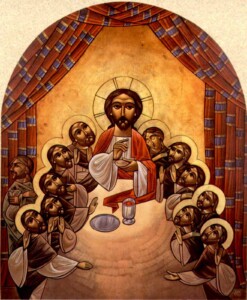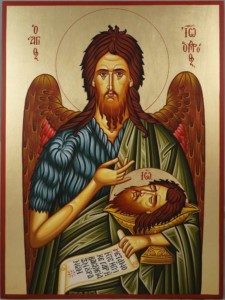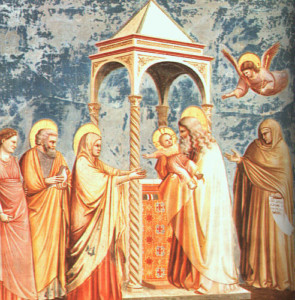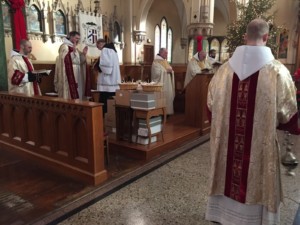One of our principal ministries as monks is intercessory prayer. The requests we receive run the gamut, but there are a few that arrive in our inboxes more frequently than others. One of the most common comes from a parent deeply desiring that child or children who have ceased practicing their Catholic faith would return to the sacraments. This heartbreaking situation is unfortunately but unsurprisingly common in our culture. In addition to praying in my own voice for the persons involved, I commend those fallen away from the Church to the prayers of the great Saint Monica. Her son, Saint Augustine, was spiritually dead, avoiding baptism, in spite of her wishes that he receive the life of Christ. It is significant that the gospel assigned to her feast day today is the story of the widow of Nain [Luke 7: 11-17], whose young son Jesus raised from the dead, after He was moved with compassion at her grief.
He wandered off from his native Africa to Rome, then to Milan, where Providence directed him into the orbit of Saint Ambrose. The sophisticated Ambrose was perhaps the first man Augustine had ever met who was fully his intellectual peer. Ambrose’s homilies explained the Scriptures to young Augustine in a way that made him reconsider in his wavering. But he was still very much stuck in a number of vices. A year or two after his arrival in Milan, he read The Life of Anthony, the story of one of the greatest monks of Egypt, and this pricked his conscience even more. This was the prelude to the famous garden scene where he hears a child singing, “Tolle et lege!”–“Take and read!” The only reading material in reach was Saint Paul’s Letter to the Romans. Upon reading Paul’s stirring call to newness of life, Augustine’s resistance broke, and he agreed to be baptized.
It was a long journey of the mind and heart. Augustine himself credited his mother’s prayers for his eventual embrace of the faith. Saint Monica knows the heartache of parents whose children have wandered off spiritually. May her powerful prayers bring many of them back to the fold.
***
After I finished this, I discovered an article with a similar theme…










